History
As an important regional provider of comprehensive and sustainable solution we integrate energy, trade, mobility and advanced services into an excellent user experience. With innovativeness, digital solutions, cost-effectiveness and partnerships, we develop successful business models.
The beginnings of Petrol
Post-war period (1945-1950)
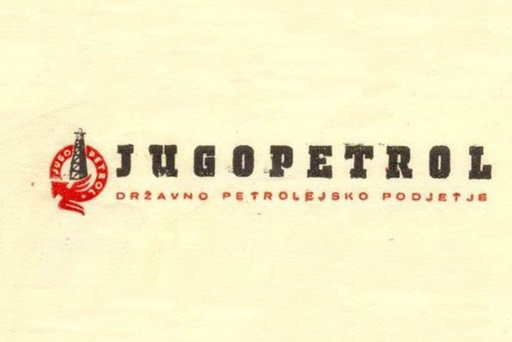
Petrol was founded on May 12, 1945 with a decision of the Yugoslav government on the establishment of the National Petroleum Company Jugopetrol, based in Belgrade. Immediately after its establishment, the company opened branches in all republics, and two years later each became an independent company, also Jugopetrol Ljubljana.
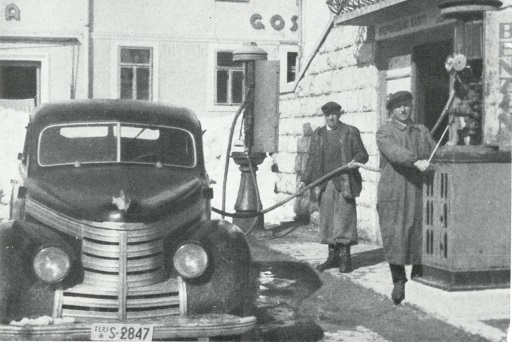
Immediately after the liberation, the army occupied all warehouses of petroleum products that were in major economic centers. The control of the supply of petroleum products for industrial plants and transport had to be taken care of immediately and the sale gradually transferred to established petroleum companies. Jugopetrol started operating in the Republic of Slovenia with 7 pre-war pumps. The initiator and organizer of the operations was Franc Malavašič, who connected the warehouses in Ljubljana, Celje and Maribor, took over the first gasoline tank rail car, emptied it into barrels and started selling gasoline. After the first 40 days of the branch's operations, Belgrade designated the engineer by Albert Struna for the director, who in less than a year set up the foundations of the branch and, consequently, a later independent company. He expanded the network of warehouses and resellers. From April 1, 1946, he was appointed as a full-time professor at the faculty of mechanical engineering at the University of Ljubljana. Therefore, he handed the management over to Milan Škerlav Petrač, a political worker and participant of the National Liberation War, who led the branch until April 12, 1947 when it became an independent company, and handed it over to the legendary Jože Rožman on July 2nd, who then took the company over for the next 32 years.
From pump to service station
The first real service station (1951-1960)

On July 5, 1950, Petrol became involved in the process of developing democratic principles of self-management in working collectives with the new Basic Law on the Management of State Enterprises. The meeting of the First Workers 'Council took place on September 15, 1950, and in January 1951 the first internal rules of the company were adopted, in which the competences of the Workers' Council were also determined. They were: signing the company's basic plans and company's final accounts, the company's management decisions, voting, dismissing and replacing the board of directors, issuing the company's rules, which are approved by the competent state body, distributing the part of the accumulation that remains for the company.
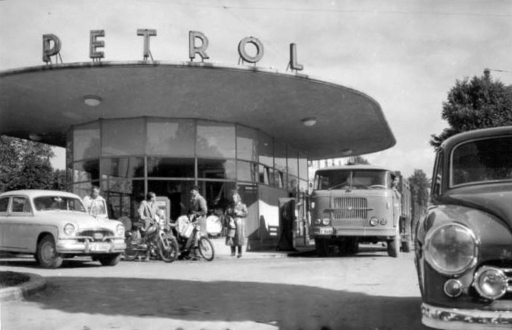
In 1953, Jugopetrol Ljubljana was renamed Petrol Ljubljana and acquired a registration for the import of petroleum products. The existing retail network of Petrol no longer complied with the growing needs, therefore, it was necessary to modernize and build new service stations. The first real service station, as we know it today, was built in Solkan near Nova Gorica. It started operating on January 15, 1953. In 1955, Albert Struna, then as an external consultant, commented on Petrol's development: "Now the whole world is driving, and on our roads there are columns that bring their demands, habits and traditions from the furthermost places. That is why we have followed modern development in order to accommodate the personal comfort of everyone." By the end of 1960, Petrol Ljubljana had 31 service stations, and in 1960, with the opening of the first restaurant in Čatež, it began to engage in catering activities.
Flourishing of personal transport
Starting the Srmin installation (1961-1970)

1964 brought an important turning point for Petrol in the self-management system. The new company statute, adopted at the April 3 Workers' Council, set new foundations for self-management at the company level and work units. The electoral units became the company's management, the Ljubljana branch, the refinery Maribor, the workshop in Ljubljana, the Ljubljana-based car park, the Zalog warehouse and 11 warehouses with service stations. This system of self-management did not undergo major substantive changes until 1973. A minor substantive change in the statute was introduced only at the end of 1969, when the terms work unit and the management board were updated to business unit and business committee.
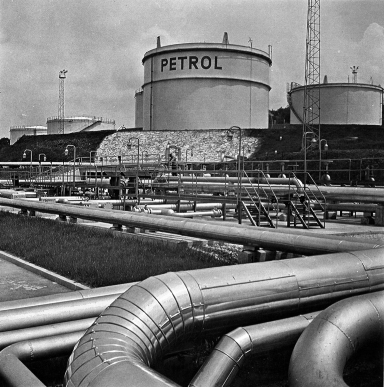
The sixties of the last century were marked by a period of blooming of personal transport. This boom has greatly influenced the development of Petrol, since it started to expand its business deliberately in the development of its own brands, which meaningfully complement the sale of fuels. The brands Dvotaktol, Antifriz, Motorol, Amortizol, Hipoidol and Vitrex were born. In 1965, the novelty in Petrol's offer was also the first proprietary brand of 98-octane gasoline, named Super Gasoline. One of the major development steps of Petrol in this period is also reflected in the construction of a service for the supply of aircraft, Aeroservis Brnik. Aviation is a big, but especially sensitive consumer. Its main requirements are top quality fuels and lubricants, as well as accuracy and speed of supply. By far the biggest and most important milestone in this period was the launch of the Srmin installation in Koper by Petrol and the supply of goods from other sources in addition to the previous exclusive supplier - INA.
Expansion of the network of service stations
From the laboratory to the shelf (1971-1980)
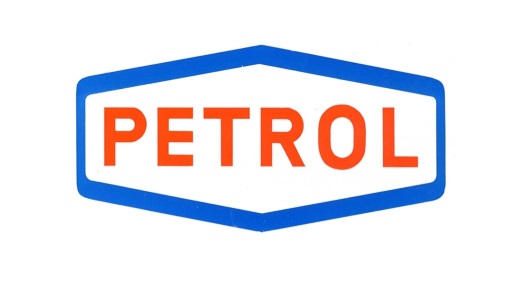
The seventies of the last century marked the realization of workers' constitutional amendments through the constitution of basic organizations of associated labor (TOZD). In Petrol, at the end of 1973, 25 labor assemblies were held, on which workers under the auspices of a work organization of associated labor adopted a decision on the organization of three organisations of associated labour: Goods Traffic, Refinery Maribor and Autopark-Workshop.
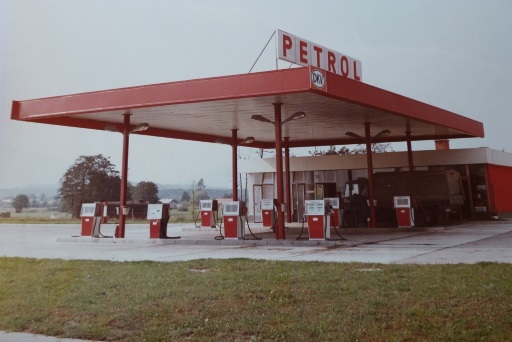
On the business side, the 1970s brought a period of intensive expansion of the network of service stations and activities, and the strengthening of an additional sales range. An important step forward in improving the knowledge of the branch and sales skills was also issued in 1972 by a manual entitled Seller at a Service Station. Sellers at Petrol service stations were carriers of the basic activity that dictated certain knowledge and special skills. The manual presented the employees a series of topics such as oil history, company development, sales techniques, motor engineering, prosperity, filling station hardware, recording business events, insurance and fire safety, and safety at work, all in one place. In 1974, TOZD Natural Gas joined the three existing units by setting up a new activity. In the same year, they invested in the refinery in Maribor, in the construction of a modern laboratory, thus improving the conditions for the production of motor oils. Insights into the 1974 business year feature impressive numbers: 230 service stations, 13 warehouses, 6 catering establishments, 5 car care centers, 2 shops and 2 motels.
Expansion of self-service stations
The complementary offer is ever more important (1981-1990)

Seven working organizations were integrated in the joint organization of combined work, SOZD Petrol, in 1984, which included sixteen basic organizations in their composition. They engaged in the activities of trading in oil, petroleum products and natural gas, automotive spare parts and equipment, the production of motor oils, lubricants and chemical products for the construction and machine industry, transport activity in Yugoslavia and abroad, and catering and tourism activities along the main roads of Slovenia.
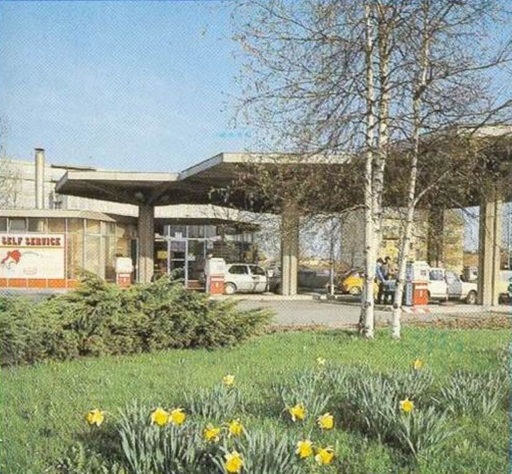
In the 1980s, a rapid and dynamic development also demanded that Petrol constantly adjust its operations to market conditions and other circumstances. Thus, over time, it transformed itself from a typical trade organization into an energy company, whose main characteristic was the care for a steady supply of Slovenia with oil, oil derivatives and natural gas. With the sale of these, in 1984, they provided consumers with as much as 40 percent of the required primary energy. In the period between 1982 and 1984, the world was shaken by the second global oil crisis, which, in Yugoslavia, led to the introduction of the use of vehicles under the odd - even system and vouchers for motor vehicles. With the fall in sales of petroleum products, Petrol started to grow awareness that the complementary offer in sales is becoming more and more important. In addition to expanding the offer of an additional assortment, Petrol's business was marked by two major turning points. In 1986, despite the difficulties in supplying at service stations, unleaded petrol began to be offered. In the approach to customers, self-service service was introduced in 1986.
From worker to renter
Petrol becomes a joint stock company (1991-2000)

The ownership transformation of socially-owned enterprises began in the SFRY with the Companies Act, adopted on 1 January 1989. On 30 March 1990, Petrol was transformed with an entry into a court register. Real ownership in Slovenia became relevant only after the emergence of the new state, with the change of the socio-political and economic system.
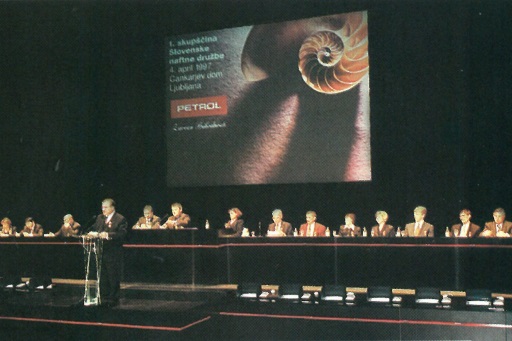
After independence, Petrol was restructured into a composite company. As a joint stock company, it was entered into the court register on December 24, 1996, and trade with the Petrol share started on the Ljubljana Stock Exchange on May 5, 1997. The process of privatization was managed by Franc Premk since February 1 1990, when he became the CEO of Petrol. He also managed the company after restructuring until January 31, 1998, when he tragically passed away as a consequence of a severe road accident. The management of the company was then taken over by Janez Lotrič. Petrol's performance in the 1990s is marked by the decision to offer service stations for rent. In just over a decade from the first signed franchise in December 1990, the ratio between between services operated by Petrol and external renters shifted to 40 against 60 in favour of the latter. 1993 saw the revolutionary introduction of the Magna payment card into the company's operation. By building the state-of-the-art chemical laboratory in 1997 in Zalog in Ljubljana, Petrol took a step forward in checking the conformity of fuels and other petroleum products and the production of own brand products. Care for the environment and sustainable development begins with the receipt of the ISO 14001 standard.
Expansion of activities and markets
Change into an energy group (2001-2010)

The new millennium has brought a new expansion of activities and entry into foreign markets. In 2001 Petrol's activities were divided into four profit centers: petroleum trade, catering and hotels, gas, electricity. The latter is a completely new business activity, which has led Petrol to the transformation process into an energy group.
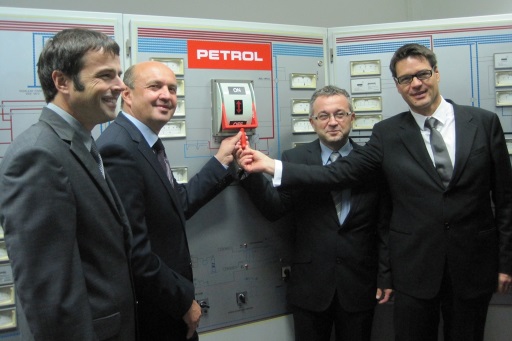
With the establishment of ElektroPetrol, Petrol became an electricity provider in 2001. In 2003, the implementation of the vision of transforming into an energy group was followed by the establishment of Petrol Energetika, which was created by the acquisition of Energetika Ravne and Energetika Štore. The next turning point happened in 2010, when Petrol expanded electricity sales to end users - households in the area of electricity trading. The first decade of this century brought an intense focus on improving the services and supply of merchandise. Petrol's offer has been enriched by the Hip Hop brand and the introduction of offer which became a synonym for stores at Petrol's retail outlets, the creation of a Call Center as support for users, the introduction of Petromats, external payment devices for fuel, and last but not least, the birth of the big hit of Petrol , the brand Coffee on The Go. With the goal of integrating employees into the company's operations, a system for improvement and innovation Prima idea was created in 2009.
By entering foreign markets - at the end of 2010, Petrol is already present in eight markets with 441 service stations - Petrol is an increasingly important regional player.
From oil trade to energy group
We are co-shaping the cities of the future (2011-2019)
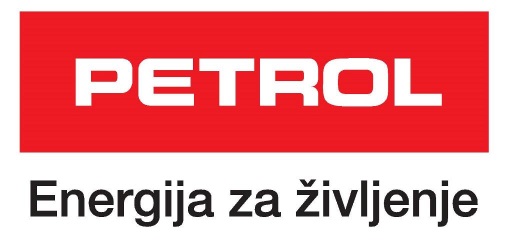
Since its transformation into a joint stock company, the ownership structure of Petrol has been characterized as a concentration of ownership. In 2018, top ten largest shareholders own 57 percent of the company's shares, and the share of foreign natural and legal persons in the ownership structure is constantly increasing over time. The largest shareholder, with almost 20%, remains the state. In 2018, Petrol is the largest Slovenian energy company, the largest Slovenian importer, the largest Slovenian company by revenue and one of the largest Slovenian trading companies. It employs over 4,800 employees in nine countries in South-Eastern Europe.
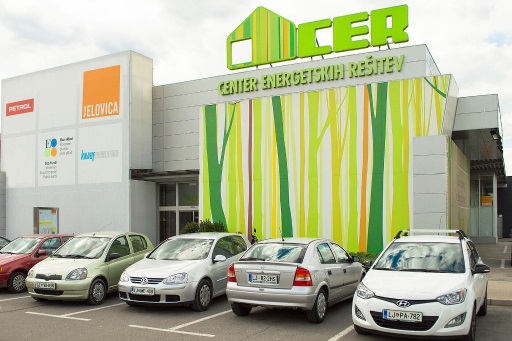
After the intensive and turbulent internal restructuring of the company and the changes in the administration that marked the past decade, the Chairman of the Board of Petrol, Tomaž Berločnik, MA, who took over the company's management on February 1, 2011, started a period of calm and consistent development in Petrol. Petrol was finally transformed into an energy company from the oil and trading one - in 2012, it enriched environmental activity and energy solutions through the establishment of the Energy Solutions Centre. At the same time, Petrol established the Petrol Club, eShop and Fresh in an incessant and continuous process of improving the services and supply of merchandise. In 2017, Petrol also entered the market of electricity production from sustainable sources of energy. Customer orientation is reinforced with the offer of applications Moj Petrol and Na Poti, with the service Petrol Tickets and mobile wallet mBills. In 2018, a large step for Petrol in Slovenia is also the offer of conceptual, convenient stores HopIN, which it began to open in the centres of larger cities.
The development strategy of the Petrol Group 2018 -2022 is built on the vision of focusing onto an excellent user experience, with the Chairman of the Petrol Board emphasizing: "In Petrol we are determined to, as a company, with comprehensive offer of solutions, sustainably ensure excellent energy at home, on the way and in business."
Merger by acquisition of Crodux Derivati Dva d.o.o.
The second largest acquisition in the last decade (2021-2022)
By connecting two strong brands in 2021, Petrol has further consolidated its presence in the region. The acquisition of Crodux Derivati Dva d.o.o. in October 2021 is the largest acquisition of a company over the last ten years. As a result, the Petrol Group’s market share in Croatia has increased to 23 percent and it has become the second largest petroleum product seller in Croatia and one of the largest Croatian companies, consolidating its position as an integral provider of energy solutions.
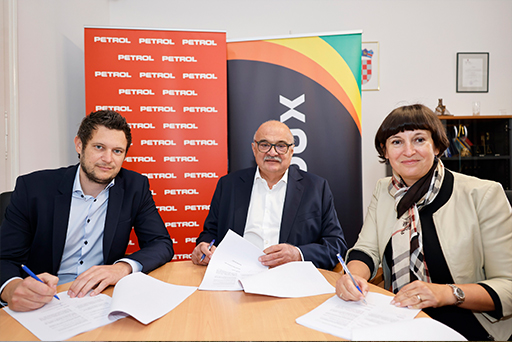
By doing this, the Petrol Group is consolidating its strategic position on SEE markets. It will offer the best of both brands. As the leading partner in the energy transition, it will continue to build a forward-looking ecosystem of sustainable and, most of all, modern and digitalised services. The acquisition of Crodux Derivati Dva d.o.o. complies with the Petrol Group’s strategy 2021–2025 and its vision to become an integrated partner in the energy transition by offering a wow customer experience. By merging Crodux into the Petrol Group in November 2022, Petrol has officially started its journey of becoming the leading provider of fuels and sustainable energy solutions in Croatia in Croatia by 2025.
